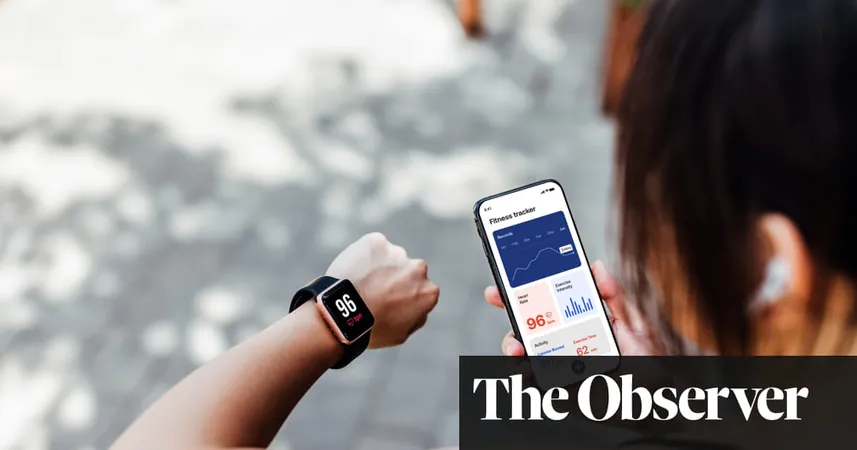
Revolutionary At-Home ECG Technology Set to Change Heart Health Monitoring Forever!
2025-01-12
Author: Nur
In a groundbreaking development, UK scientists are on the brink of revolutionizing heart health diagnostics with at-home electrocardiogram (ECG) devices. Traditionally, ECG procedures require a medical professional to attach dozens of electrodes to a patient's chest, arms, and legs, creating a complicated and expensive process. However, the new technology promises to empower individuals, allowing them to conduct detailed ECGs in the comfort of their own homes while receiving clear and informative results.
The rationale is straightforward: early detection saves lives. Current medical practices often slow down the diagnosis of potentially fatal cardiac conditions, leading to missed opportunities for timely interventions. With the new technology, patients can quickly identify risks and take proactive steps to safeguard their heart health. “The ability to monitor your heart at home could lead to earlier diagnoses and ultimately save thousands of lives,” emphasized Professor Caroline Jay from Manchester University.
Unlike current smartwatches that offer only superficial ECG readings, the new devices rely on advanced artificial intelligence and cognitive psychology strategies to deliver an accessible, color-coded report of heart health status. Each color within the output has a specific meaning: blue-green signals a healthy heart, yellow indicates potential risk, and orange-red alerts the user to urgent medical concerns. Dr. Alaa Alahmadi, a leading researcher on this project, remarked, “We are essentially transforming ECG readouts to be as easy to interpret as possible. Even for trained clinicians, traditional ECGs can be daunting.
A specific area of concern is long QT syndrome, a condition where the heart's electrical system has delayed recovery between beats. This can lead to severe complications ranging from fainting to cardiac arrest and can be exacerbated by medications such as some antidepressants and antibiotics. With this new technology, monitoring and managing the condition could become straightforward, enabling early detection of any drug-induced risks.
The anticipated rollout of this technology means that wearable electronic devices, such as smartwatches, will be capable of conducting ECGs, offering real-time health information that is crucial for individuals and healthcare providers alike. “Patients will have the autonomy to conduct their ECGs at home and will understand the results instantly, which can lead to more informed conversations with their healthcare professionals,” added Alahmadi.
As the development progresses, researchers remain focused on refining the system for ease of use, accuracy, and reliability. The goal is to not only assist healthcare practitioners but also demystify heart health for the public. By enabling individuals to understand their heart's activity, this technology could potentially lead to a seismic shift in cardiovascular health outcomes—and significantly reduce the burden of heart disease.
Stay tuned as these remarkable advancements in at-home ECG technology continue to unfold, promising better heart health monitoring and empowering people to take charge of their well-being like never before!
 Brasil (PT)
Brasil (PT)
 Canada (EN)
Canada (EN)
 Chile (ES)
Chile (ES)
 Česko (CS)
Česko (CS)
 대한민국 (KO)
대한민국 (KO)
 España (ES)
España (ES)
 France (FR)
France (FR)
 Hong Kong (EN)
Hong Kong (EN)
 Italia (IT)
Italia (IT)
 日本 (JA)
日本 (JA)
 Magyarország (HU)
Magyarország (HU)
 Norge (NO)
Norge (NO)
 Polska (PL)
Polska (PL)
 Schweiz (DE)
Schweiz (DE)
 Singapore (EN)
Singapore (EN)
 Sverige (SV)
Sverige (SV)
 Suomi (FI)
Suomi (FI)
 Türkiye (TR)
Türkiye (TR)
 الإمارات العربية المتحدة (AR)
الإمارات العربية المتحدة (AR)